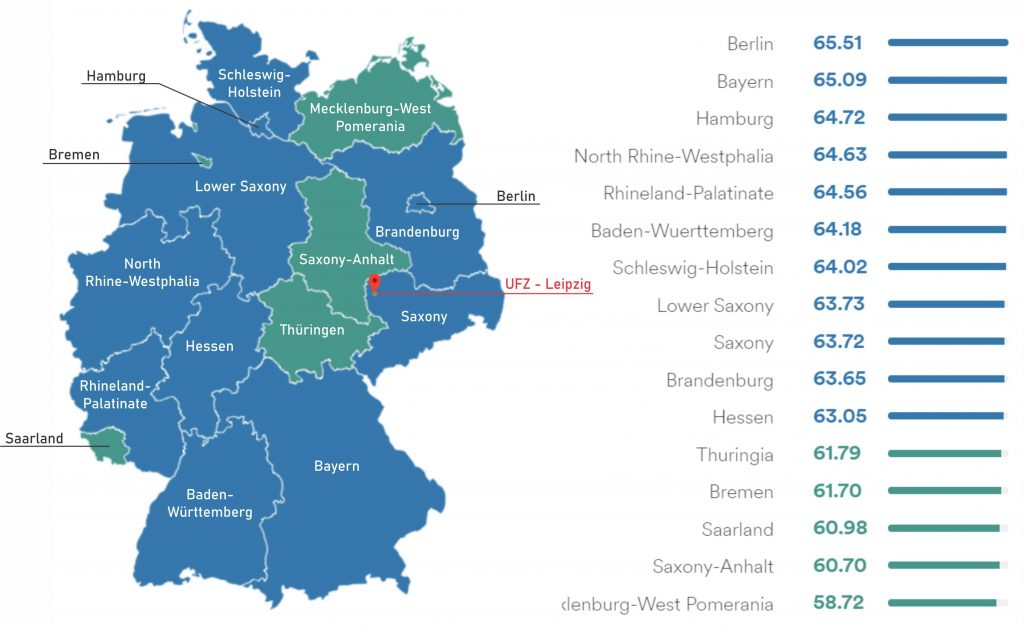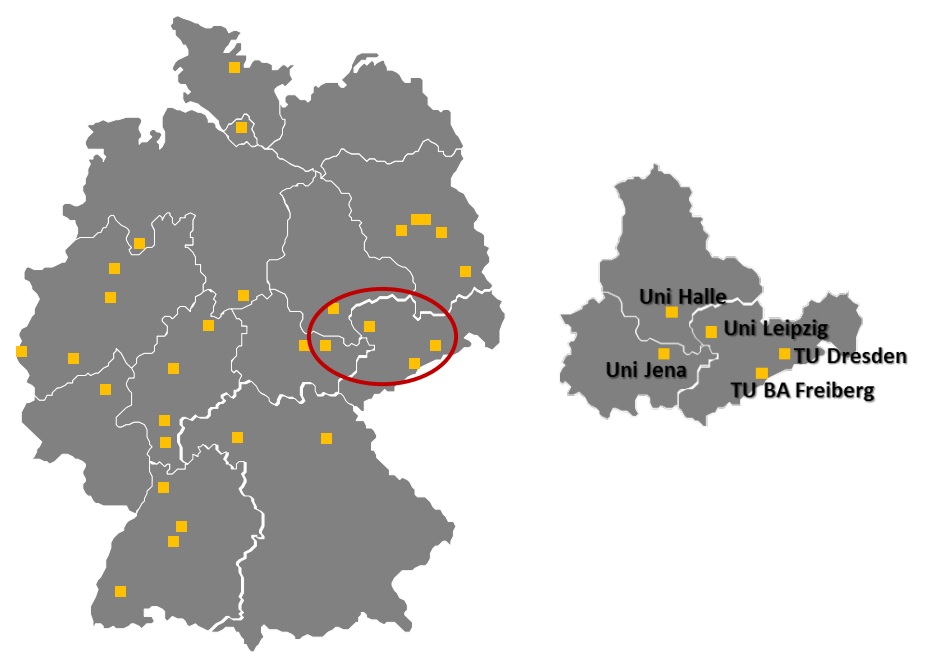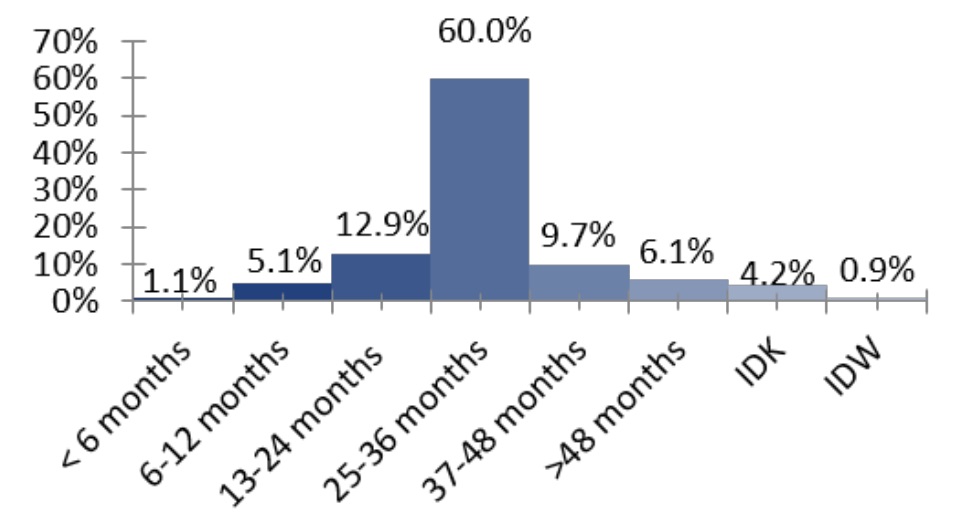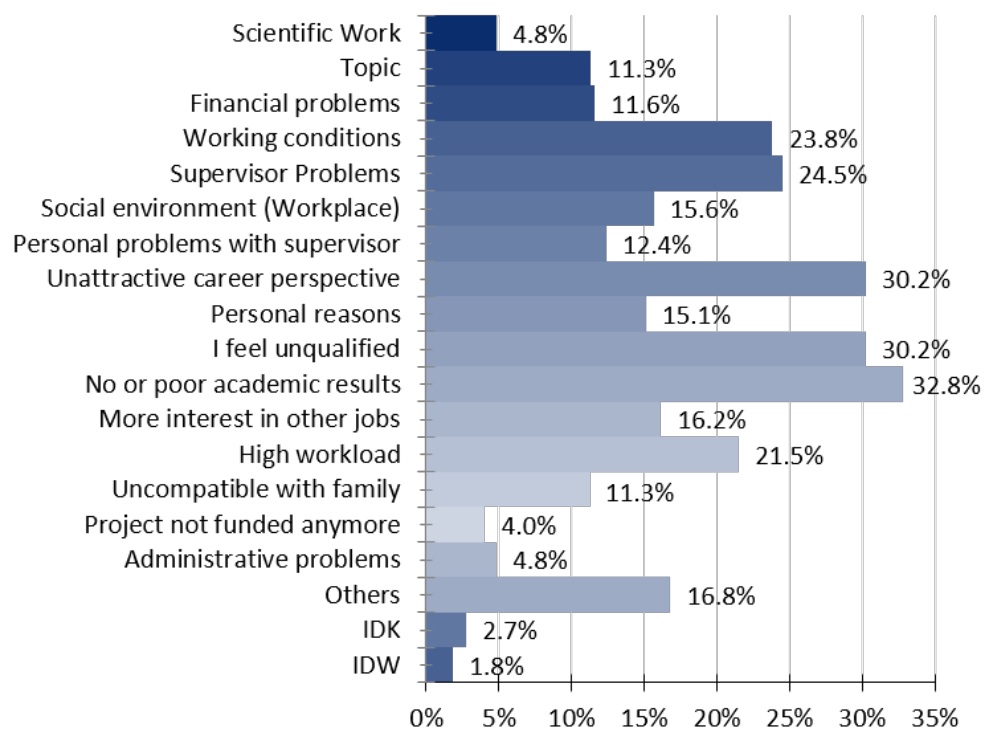Author: Rodrigo Colpo
Acknowledgments: Many thanks to Dr. Florian Centler, Dr. Denny Popp, and Dr. Kristina Raab, who carefully proofread this text and contributed with extra information.
Target audience: Prospective PhD candidates considering doing a PhD at the Helmholtz Centre for Environmental Research – UFZ (Germany).
If you are living abroad and considering moving to Germany for a PhD, you probably want to hear what this is like from people who had already gone through this experience. You might have some questions about the PhD process in Germany, or just want to gather more information before deciding to take this big step. In this text, I will share with you some of what I have learned since I started my PhD at the UFZ, 8 months ago.
Should I do a PhD?
PhD candidates / doctoral researcher should be able to independently conduct relevant original research, with general guidelines and objectives usually provided by the supervisor. You should have the support of your working team to discuss the research results you produced, and maybe for guidance on how to address some problems – but you will be the one responsible and conducting the scientific research. This means you should develop hypotheses to be tested, plan your work, analyze your data, assess the quality of your results, and develop critical thinking even on the procedures you have been adopting. You should also be able to clearly communicate your results in written form and verbally engage in discussions about them. If all goes well, after some years of hard work, you will hold a PhD title.
After getting your much desired title, there are several career tracks possibilities, and working in research and development (R&D) is just one of them. In fact, in 2015 only 17% of PhD holders in Germany under the age of 45 were working on R&D as their primary activity [source]. These numbers might come as a surprise for some, but show how competitive the academic sector actually is and the difficulty in finding permanent positions.
The possibility of a PhD graduate ending up not working in science is actually big, as the data show. In this case, it is probably a good idea to ask yourself: even if no future position in science is secured, is it still worth doing a PhD? For the career you are aiming for, isn’t a Master’s degree enough?
What is the PhD salary in Germany?
There are options for where the money that will fund you during your PhD time will come from, and having a scholarship is just one of them. A second funding option is being employed as an academic assistant / research associate (in German wissenschaftlicher Mitarbeiter) with a temporary employment contract. As such, doctoral researchers are less seen as students and more as workers. We have vacation rights and pay retirement taxes (among many other taxes).
New salary policies have recently been adopted by the UFZ for all new doctoral researchers to receive at least 65% of the grade 13 of TVöD public-sector [source] [source]. As for 2020, during the first year of the PhD, this salary is approximately €2.600, which after deductions of health insurance (and other taxes that vary according to the personal situation), became around €1.700. Payments of 50% of grade 13 is still a reality for many contracts at other institutions.
Living costs:
Living expenses in Germany can vary greatly depending on where you live. While Frankfurt and Munich are the two most expensive cities in Germany, Leipzig is on the other end of this spectrum, being one of the cheapest “top cities” in the country [source].
Living in Leipzig can be relatively cheap, especially concerning housing. Some PhD candidates pay in shared houses around €350 per month each. However, if you are new in the city, this is probably not an option for you. When I arrived in Leipzig, my first home was at BaseCamp [source], which I booked online and I was very happy with the facilities provided. If you want to check more options for where to live, the UFZ has a webpage with some extra information.
The language barrier:
Speaking only English is generally sufficient for doing a PhD in Germany. If you have to attend courses, they will be taught in English; emails will be bilingual (German and English); all the meetings will be in English and you will feel integrated in your working group; the educational system, and the people involved in it, are prepared to warmly welcome foreigners and don’t expect us to speak German. The number of international doctoral researchers enrolled at German institutions is probably a consequence of this: at the Helmholtz Association Centres (UFZ is one of the 19 members of the Helmholtz Association) around 40% are internationals [source], while at Max Planck Society this number is of around 50% [source].
Germany is the eighth country in Europe regarding the English proficiency level of its citizens [source], with just some small differences depending on the state, as shown in Figure 1. However, you can easily find Germans outside the campus of your institution who are not confident enough to speak English, and the language can become a barrier.

For you to feel better integrated in the German society outside campus, it is probably important to learn German – although many doctoral researchers never do. The People & Culture department at UFZ understands that speaking German has an impact on the quality of life of researchers, and finances German courses up to the level B1.
The PhD process:
In Germany, there are two ways of doing a PhD [source]: (i) through an individual doctorate, in which the thesis is supervised by a professor, and (ii) through a structured PhD programme, in which the PhD candidate has the support of a team of supervisors, and it is necessary to attend lectures/seminars.
UFZ has a structured PhD program [source] which, from my perspective, is a big plus to the PhD experience. Structured PhD programmes is the choice of 23% of PhD candidates in Germany [source].
- Selection process
Some structured PhD programmes, such as the International Max Planck Research School, adopt a centralized selection procedure which is carried out by a board of scientists from the institution. However, the vast majority of PhD selection processes are carried out directly by the future supervisor, and UFZ is no exception. Some supervisors will choose to make a CV analysis, plus an interview where the candidate should make a short presentation about himself/herself, while other selection processes can involve a lengthy email exchange with scientific questions to be answered. It all depends on the supervisor’s style and expectations.
I’m originally from Brazil, where I did my university degree and Master, and I was a bit surprised that my supervisor was the one to conduct the selection process, but the more I get to know the PhD system in Germany, the more I like it. My PhD project was written by my supervisor, Dr. Florian Centler, together with Prof James McDonald from Bangor University, and Prof Bernard Henrissat from Aix-Marseille University. In this context, no one knows better the skills and competencies needed on the doctoral researcher for this project than the people conducting the interviews.
- Arriving at the UFZ
On my first working day at the UFZ, I was profusely welcomed by my supervisor, signed my working contract, received a “welcome kit” from the Human Resource department, and got to know my new office space. During my first days, it was also important to attend the “Welcome Day” event, which gives initial information about the UFZ structure and even offers a guided tour on the campus.
- Planning your PhD
During the first five months after entering the PhD program at the UFZ, an advisory committee should be chosen, which will offer you further support to the PhD project completion. Apart for the main UFZ supervisor (likely the one who you made the PhD application with), other 3 people should be part of the advisory committee: a second UFZ supervisor, a university professor, and a “person of trust” (to mediate possible conflicts). A supervision agreement should also be written, what is a great way of planning the next 3 years of work and to gain in-depth knowledge of the research project. The agreement should contain the roles and responsibilities of both doctoral researcher and supervisors, and how the research project will be executed. Some questions that should be answered are: research question to be addressed; hypotheses to be tested; theories to be used; expected results, and potential risks to the project completion. The PhD candidate is mainly responsible for writing the supervision agreement, but the entire advisory committee should agree to its content and sign it.
- Classes during the PhD
PhD candidates at the UFZ are linked to a graduate school: HIGRADE – Helmholtz Interdisciplinary GRADuate School for Environmental Research [source]. During the 3 years that the PhD is expected to last, the researcher should attend at least 30 days of short courses, with each course lasting from half a day to 4 days. There is no evaluation (although the lecturer is evaluated), and the courses have a strong practical emphasis, designed to develop academic/scientific skills, and presentation/writing techniques. The researcher is free to choose the courses that fit best their interest.
- University affiliation
Non-university research institutes, such as Helmholtz Association Centres and Max Planck Institutes, do not have the right to award PhD titles. Because only universities have such right, strictly speaking, I am not doing a PhD at UFZ, but I’m employed, with a fixed-term contract, to develop a research project. The result of the project will be put together in a written form (thesis) and be defended in an oral examination.
The PhD candidate, together with the UFZ project coordinator, should find a university professor to supervise the project. While it is possible to choose any university in Germany to defend your thesis, a collaboration between the research institute and the university can facilitate this procedure. The UFZ has collaborations with around 35 different universities around the country, which locations are shown in Figure 2.

The public universities are almost tuition-free, with only a semester fee, which ranges from 80€ to around 150€, and allows the doctoral researcher to have access to a cheaper public transport card, eat in the university canteen at a reduced price, and enter some museums with a reduced fee.
How long does it take to complete a PhD in Germany?
PhD projects are expected to last for 3 years, and the working contracts reflect this time length. The Figure 3 shows the contract duration of PhD candidates at the Helmholtz Association.

However, it is important to notice that most PhD candidates take longer than planned to finish their thesis. Reasons for delay include: too many collaborations with your colleagues’ projects; adventuring on too many side projects; struggling to achieve the minimum requirements for defending your PhD, like the number of published scientific papers; delay in getting data from project partners, and even changes in the advisory committee. Motivational problems can also affect PhD candidates, and cause delays to the project development. At the Helmholtz Association Centres, almost 60% of the PhD candidates have considered at some point quitting their PhD [source], and some of the underlying reasons are shown in Figure 4.

Despite usually having contracts for 3 years, at Helmholtz Research Centres most PhD candidates need between 3 and 4 years until submitting their thesis. A consequence of this is a high fraction of PhD candidates between the 36th and 47th months of their projects, as seen in Figure 5, and that some PhD candidates consider quitting their PhD, giving the answer “Project not funded anymore” on Figure 4.

Personal notes about this journey:
When I decided to apply for a PhD position, I did not have any preference for the working group, institution, or even the country (although I wanted to keep living in Europe). My only particular interest was about the project, which I wanted to be related to the topic I researched during my Master’s. Moving to Germany, to a city I have never been, and to work with people I had never meet in person, felt somehow like a step into the dark. Looking back, I just feel very fortunate to actually find both brilliant and kind people, and a city where I’m slowing feeling like home.
If you are embarking on a similar journey as myself, I can imagine you are feeling a mix of anxiety and happiness, and trying to gather as much information as possible (as you are doing by reading this) is probably the best first step you can make. I wish you the best of luck.